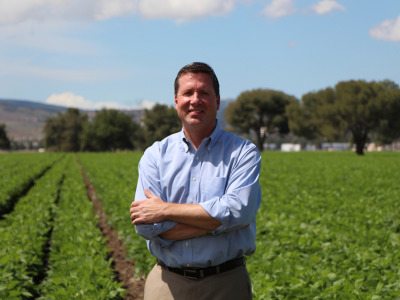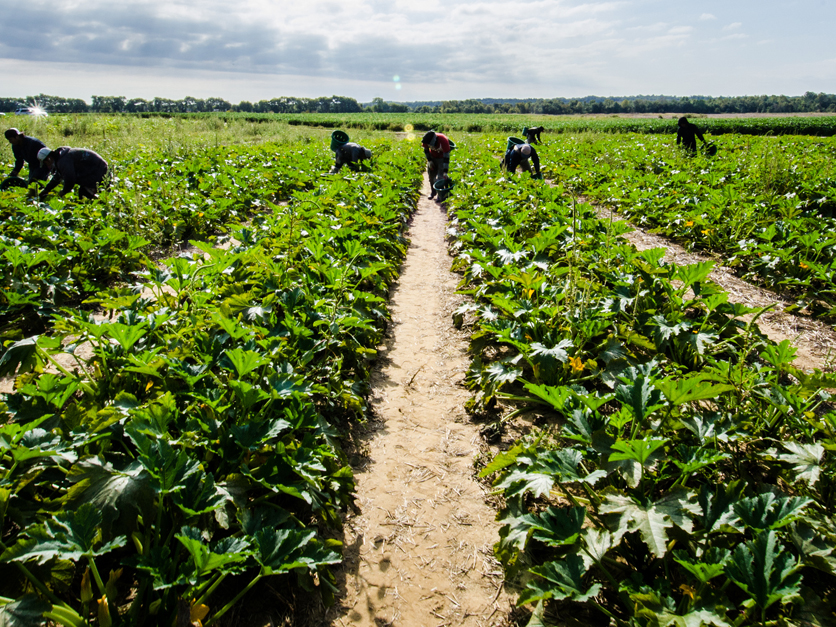Producers of fruits, vegetables and other specialty crops will be asking lawmakers for more money in the next farm bill, including new research to meet the sector’s pressing need for automation and new crop-protection products.
The sector is also developing proposals for new risk management policies that could cover risks, such as outbreaks of pests and foodborne illnesses that are not covered by traditional crop insurance.
It’s not at all clear that there will be any new funding for the next farm bill, which Congress is due to write in 2023. But leaders of the industry believe policymakers’ interest in improving Americans’ nutrition and reducing diet-related diseases could help the sector build political support for its farm bill recommendations.
The Specialty Crops Farm Bill Alliance had hoped to have its farm bill recommendations ready by the end of this month, but it’s taking some time to finalize details, including the amount of new funding the coalition will be seeking as well as the proposal for new risk management tools.
Lawmakers and aides continue to tell farm groups not to expect any increased farm bill funding, but Dave Puglia, president and CEO of the Western Growers Association, told members of the International Fresh Produce Association on Tuesday that he refuses to accept that.
“This government has printed trillions of dollars of money out of thin air in the last year or so,” he said. “I don't like inflation, but I want to make sure we can get what we need.”
He said the fruit and vegetable sector needs to maintain an alliance with nutrition advocates, who in the past have helped to ensure the support of urban and suburban lawmakers for past farm bills.
 Dave Puglia, Western Growers
Dave Puglia, Western Growers
“Not to disparage all of the farmers who grow the other stuff that gets most of the ag portion of the farm bill, but the nutrition advocacy crowd looks very favorably on us, and so all the more reason to keep us tied together,” said Puglia.
The White House's release this week of a national strategy for nutrition and health could help put a focus on the importance of the specialty crop sector heading into the farm bill debate, said Mollie Van Lieu, IFPA's vice president for nutrition and health. “This is the industry that can answer the problem of dietary quality,” she said.
Puglia told Agri-Pulse the alliance is likely to have a “serious ask” for more research funding.
The 2018 farm bill funded the Specialty Crop Research Initiative at $100 million, up from $80 million in the 2014 law.
“We want to see increased investment in new biologicals and alternatives to crop protection tools that have been taken away from us,” Puglia said.
California, other states and the federal Environmental Protection Agency “are moving quickly to take crop protection tools out of the toolbox without alternatives available … And we’re seeing increased pest pressures in places where we haven’t seen them before,” likely as a result of climate change, Puglia said.
He also said the industry needs USDA to fund more research on automating the harvesting of crops. It’s hard, Puglia noted, for the sector to attract private investment in developing equipment that serves limited, niche markets.
Interested in more coverage and insights? Receive a free month of Agri-Pulse!
The need for automation has become more acute with the industry’s inability to get Congress to pass ag labor reforms. The House-passed Farm Workforce Modernization Act, which would expand the H-2A program and provide a path to legal status for existing works, remains bogged down in the Senate.
Puglia said lawmakers need to be reassured the industry isn’t trying to shed workers, but rather to move employees into better jobs than they have now. Future jobs will involve “operating equipment up on the platform, in the shade,” he said.
The coalition also is likely to seek more funding for the Specialty Crop Block Grant program, which provides funding to state departments of agriculture to fund local and regional priorities.
As with the SCRI, successive farm bills have steadily increased the funding for the block grant program, from $45 million a year in the 2008 farm bill to $75 million in the 2014 law. The 2018 farm bill funds the program at $85 million a year.
Puglia told Agri-Pulse that the alliance leaders would keep in mind how other ag sectors would react to the specialty crop funding requests. "There are other parts of the ag industry that may not be comfortable if we're asking for a large amount," he said.
Leaders of the alliance continue to hash out proposals for expanding the availability of risk management products.
There is continuing interest in the sector for an insurance policy that would protect producers’ revenue when there are marketing disruptions due to outbreaks of foodborne illnesses. Some producers also would like protection from the market impacts of trade disruptions, pests and quarantines and other events.
Although USDA already has the legal authority to consider new crop insurance policies, the new types of coverage that specialty crop producers are seeking will likely require new language in the farm bill, said Robert Guenther, chief public policy officer for IFPA.
“That’s a big discussion that we’re having. It’s bigger than what we’ve had in other farm bills,” Guenther said.
For more news, go to Agri-Pulse.com.


